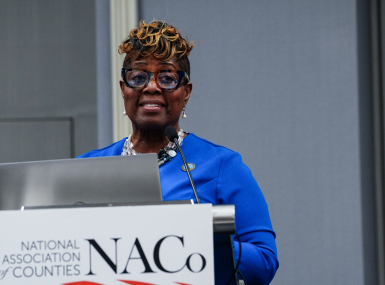Local Strategies for Reaching Families and Young Children Experiencing Homelessness

Watch On-Demand
Click the video player below to watch the webinar on-demand. If you are having issues accessing the recording, please email nacomeetings@naco.org.
Experiencing homelessness in early childhood can have long-term impacts on health, education and well-being for both children and parents. Homelessness among young children is often hidden, making it harder to collect accurate data and ensure that these children are connected to the services and resources they need. Join NACoRF and SchoolHouse Connection to learn more about the prevalence of homelessness among infants and toddlers and how counties can reduce barriers and increase families’ connections to health and early learning programs.
Watch Recording
Click here to watch the recording in a new window.
Speakers

Erin Patterson

Wendy Kinnear






